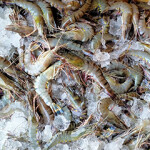Shrimp enters SIMP with “informed compliance” period
As shrimp’s inclusion into a federal government program to monitor seafood imports begins its fourth week, companies affected by the program say it’s been business as usual for them.
On 31 December, NOAA Fisheries along with Customs and Border Protection officials started an informed compliance period for shrimp importers participating in the Seafood Import Monitoring Program. SIMP requires importers keep chain of custody data for products entering the United States. It also requires the shipments to come with harvest and landing data to ensure the products are properly labeled.
According to the NOAA Fisheries website, imported shrimp entries will be inspected and audited, but they will not be rejected through 1 March if the mandatory data is missing. The website adds that the “informed compliance” period allows shrimp processors and importers time to work through any accidental errors in their recordkeeping.
After 1 March, any entries without the required data will be rejected.
The 31 December start date was announced in a Federal Register publication last April. While there is a limited shutdown of the federal government currently, R.L. Visconti, an import broker, told SeafoodSource imports still need to comply with the guidelines.
Jeff Stern, vice president of purchasing for Censea, a major U.S. shrimp importer, said at the Global Seafood Market Conference on 16 January that all of his company’s shrimp entries are being processed as normal.
“Whether that will create a bottleneck as the shutdown goes on, that's impossible to predict,” he added.
Attempts to reach NOAA Fisheries officials for comment were unsuccessful as many agency staffers have been furloughed from their jobs since the shutdown began more than four weeks ago.
SIMP began on 1 January, 2018, with such products as Atlantic cod, red snapper, swordfish, and tunas requiring the documentation. Despite being the top imported seafood product, shrimp, at that time, was excluded because similar record keeping requirements had not been put in place for U.S. shrimpers and producers.
A group of 11 U.S. senators pushed to add shrimp into the program last year by including the provision in the Commerce appropriations bill, that President Trump signed into law as part of an omnibus spending package last March.






Share